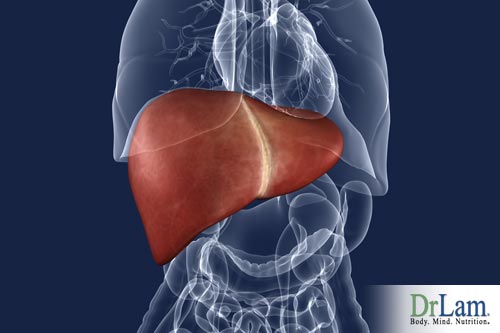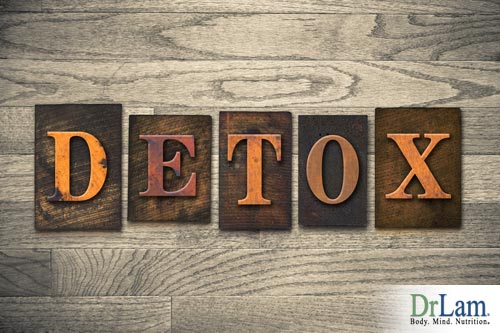
 The liver is a one of the body’s most important multi-taskers. Besides clearing your bloodstream of toxins, it aids in metabolism, helps your body build proteins, digests hormones, and much more. Liver congestion is a state where the liver function is suboptimal because the flow within is slowed, resulting in poor and slowed metabolite clearance. Laboratory tests typically show as normal or marginally abnormal. Conventional medicine has no solution and this state is often passed over as insignificant. However, it is an obvious sign of a potential future health crisis and you need to be on alert and act promptly to reverse damage that is present, but not severe enough to show up on blood test. The liver is an important organ in our body’s stress response, and one of the best ways to maintain a health stress response is to improve liver health. Let’s find out more.
The liver is a one of the body’s most important multi-taskers. Besides clearing your bloodstream of toxins, it aids in metabolism, helps your body build proteins, digests hormones, and much more. Liver congestion is a state where the liver function is suboptimal because the flow within is slowed, resulting in poor and slowed metabolite clearance. Laboratory tests typically show as normal or marginally abnormal. Conventional medicine has no solution and this state is often passed over as insignificant. However, it is an obvious sign of a potential future health crisis and you need to be on alert and act promptly to reverse damage that is present, but not severe enough to show up on blood test. The liver is an important organ in our body’s stress response, and one of the best ways to maintain a health stress response is to improve liver health. Let’s find out more.
The NeuroEndoMetabolic (NEM) Stress Model represents and describes the body’s response to stress, and how stress should be holistically evaluated and treated. The adrenal organs are the first line of defense against stress, responsible for producing over 50 stress hormones, including the most prevalent and important – cortisol. The liver is second in line and is commonly affected as well.
To fully stimulate the body’s ability to quickly and effectively produce an NEM response to stress whenever it comes knocking at your door, all of your body’s organs, systems, pathways, and chemical reactions need to be in tip-top shape. The detoxification response is very important to ensure that the body is clean and ready to handle anything that is thrown at it. The liver is one of the organs that plays a crucial part in the detoxification pathway, so a healthy liver is completely necessary for your body to prepare the NEM response to stress.
In advanced stages (stages 3 and beyond) of adrenal fatigue, the body can often become congested and bogged down by a buildup of toxins and metabolites. This is often due to a sluggish liver that gets overwhelmed as the body loses energy and must slow down in order to conserve energy. A buildup of toxins in the body may lead to hypersensitivities to chemicals, medications, and even electromagnetic fields.
Following these guidelines to liver health can greatly improve your body’s response time to stress, prevent onset of adrenal crashes, stabilize blood sugar, and reduce “brain fog” that commonly is associated with a congested liver.
 While detoxifying the liver appears to be a logical approach, many people fail and in fact worsen their adrenal fatigue. This is usually due to improper timing, overzealous approaches, or lack of a comprehensive plan for the total recovery progress. This is especially true if one is in advanced stages of adrenal fatigue when the body is weak. Characteristic symptoms of this include the need to eat every two to three hours, insomnia, heart palpitations, brain fog, dizziness, low exercise capacity, and depression. For those with advanced adrenal fatigue, even gentle detoxification may be stressful on the body and could do more harm than good. Adrenal crashes can be triggered, and in severe cases, could leave you bedridden.
While detoxifying the liver appears to be a logical approach, many people fail and in fact worsen their adrenal fatigue. This is usually due to improper timing, overzealous approaches, or lack of a comprehensive plan for the total recovery progress. This is especially true if one is in advanced stages of adrenal fatigue when the body is weak. Characteristic symptoms of this include the need to eat every two to three hours, insomnia, heart palpitations, brain fog, dizziness, low exercise capacity, and depression. For those with advanced adrenal fatigue, even gentle detoxification may be stressful on the body and could do more harm than good. Adrenal crashes can be triggered, and in severe cases, could leave you bedridden.
The following tips can be considered if deployed properly at the right time with the right dose and delivery system. The right thing done at the wrong time can worsen your congestion. A comprehensive clinical plan must be in place in case the body decompensates. Take care when implementing any of the suggestions below, as indiscriminate use of detoxification, however good in therapy, is a common cause of adrenal crashes and retarded recovery. Proceed only under the guidance of an experienced professional if you are in an advanced state of adrenal weakness.

Bitter herbs aid in detoxification by helping the liver break down nutrition and impurities. A combination of bitters in a tea about half an hour before you eat can aid in digestion, liver function and detoxification.
Toxins removed from the liver in cleansing will only be reabsorbed if not purged from your bowels. Soluble fiber psyllium is a common purgative, which is safe to use daily. Stir a teaspoon into two cups of water or tea, and then flush it with water half an hour before any other foods, supplements, or drinks, or two hours after. Some people can develop paradoxical effect and become constipated. If you suffer from an irritable bowel, proceed with care.
Milk thistle is an effective liver tonic to reverse chemical liver damage and prevent toxicity of the liver in cancer patients undergoing chemotherapy. Milk thistle nourishes and supports the liver and can be taken for long periods of time without any problems. Fermented milk thistle in liquid form is particularly potent, as the fermentation process breaks down molecules into micronutrients, allowing for easy absorption and assimilation.
The liver bounces back quickly from the stress of poor nutrition, so you can actually detox fairly rapidly by fasting for no more than one to three days, depending on the severity of your liver congestion and overall health. Fasting will allow your liver the opportunity to process nutrients and toxins it is taxed with every time you eat.
 When fasting for liver health, you will still need energy and nutrients, so be prepared by having nutrient-rich fruit and vegetable juices available to drink every three hours or so, such as carrot juice and or juices made of pure, organic, fibrous fruits and vegetables, to provide the minimum daily requirement of calories to prevent muscle loss. Fasting is a quick reboot of your organs, so don’t prolong it any more than necessary, and stop if you experience fatigue, weakness, or dizziness.
When fasting for liver health, you will still need energy and nutrients, so be prepared by having nutrient-rich fruit and vegetable juices available to drink every three hours or so, such as carrot juice and or juices made of pure, organic, fibrous fruits and vegetables, to provide the minimum daily requirement of calories to prevent muscle loss. Fasting is a quick reboot of your organs, so don’t prolong it any more than necessary, and stop if you experience fatigue, weakness, or dizziness.
Note that in advanced stages of adrenal fatigue, the body may start to lose blood glucose regulation functionality as metabolism becomes dysregulated. In these cases, it is not advisable to go long periods without eating, and fasting is not recommended. In fact, the body in advanced stages of adrenal fatigue frequently needs to have food every two to three hours to avoid a state of reactive hypoglycemia. This is where symptoms of low blood sugar are present, but the laboratory glucose is normal.
In the modern world, it is nearly impossible to avoid all toxins and contaminants, but you should do whatever possible to support proper liver and organ function with a healthy lifestyle.
Your organs need water to cleanse and survive. Increasing your water intake helps accelerate the speed at which your liver breaks down nutrients and flushes out toxins. Drinking 16 ounces of water within moments after waking stimulates your liver and helps rid the body of toxins it has been breaking down overnight. Aim for 16 ounces every time you eat – eight ounces before and eight ounces after each meal and snack. Starving your organs of proper hydration causes slower digestion and removal of toxins from the body. Adding lemon slices to water may help to detox and balance the pH of your body – and it tastes good, too. Those in advanced stages of adrenal fatigue need to be careful not to take in excessive fluid without proper electrolyte replenishment, to avoid a condition known as dilutional hyponatremia.
 Legumes – kidney beans, chickpeas, and string beans all have cooling properties.
Legumes – kidney beans, chickpeas, and string beans all have cooling properties.The exact proportion and timing varies from person to person. Some need to be on rotation to allow the liver ample time to process if the congestion is severe.
 Your liver can become sluggish with a buildup of fatty tissue. Sedentary people often have the worst liver function, so give your body an energy boost and incorporate exercise into your daily routine. Even just five minutes of cardiovascular exercise, such as jogging in place, walking up and down stairs, or Pilates, will help improve your liver function.
Your liver can become sluggish with a buildup of fatty tissue. Sedentary people often have the worst liver function, so give your body an energy boost and incorporate exercise into your daily routine. Even just five minutes of cardiovascular exercise, such as jogging in place, walking up and down stairs, or Pilates, will help improve your liver function.
Once again, if your body is in advanced stages of adrenal fatigue, exercise may not be recommended, as it can be stressful on your body and deplete your energy reserves.
Your liver needs periods of rest in order to function. You can achieve organ rest with meditation – careful relaxation techniques that allow your body to fully rest and repair.
© Copyright 2016 Michael Lam, M.D. All Rights Reserved.

